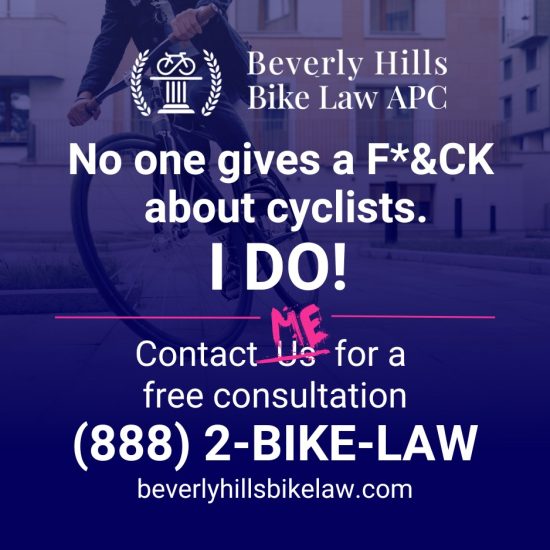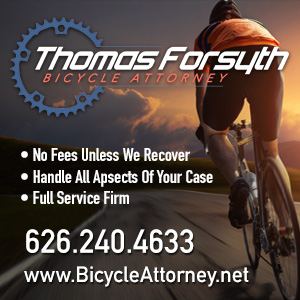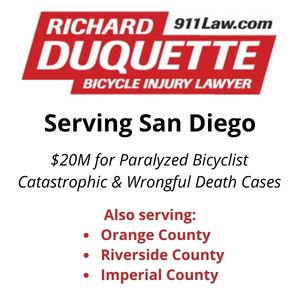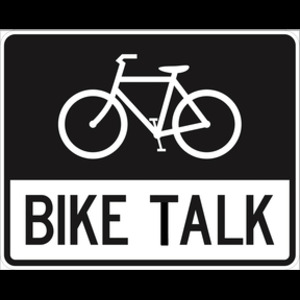“Some people claim that there’s a woman to blame
But I know it’s my own damned fault.”
— Jimmy Buffet
— Bart Simpson
“I didn’t do it, nobody saw me do it, no one can prove anything.”
I got a nice surprise yesterday. Due to some issues at the new job (and boy, do they have some issues), I found myself with an unexpected day off. And looking out the window, I also found an unexpected, end-of-season heat wave providing near-perfect riding conditions — and a perfect opportunity to take advantage of it.
So I lubed the chain, wiped off the grit and sand from my last few rides, and took off for the coast. I thought I might take advantage of the weather by riding the entire Marvin Braude Bikeway, from my home in Westwood up to the northern end of the path at Will Rogers State Beach, then south through Santa Monica and Venice, around the Marina, and down along the South Bay section through to where it ends at Palos Verdes, and back again — 59 miles from door-to-door.
I knew I really wasn’t up to it after sitting behind a desk for the last two-plus weeks, with only one day in the saddle since mid-September. But knowing how rare days like this really are, and not knowing when I might have the opportunity again, I vowed to press ahead — knowing full well the price I was going to pay. (On the other hand, that was nothing compared to this guy’s next ride.)
And pay I did.
I spent the next three hours after my ride completely spent, stretched out on the couch, and twitching and jumping every few minutes due to the frequent leg cramps. Between an amino acid, protein, watermelon and banana shake, a couple Excedrin and lots of caffeine, the cramps finally subsided, though the aches and pains lasted through the night, keeping me awake much of the night.
But I take full responsibility. I knew exactly what I was getting into, and made a conscious decision to do it anyway.
And believe me, it was worth it.
Of course, it’s easy to assume responsibility when the only consequence is a few aches and pains. It’s much harder when there are real consequences involved.
Like my road rage incident a few years back. I had no problem at all blaming the woman who deliberately hit my with her car for refusing to share the road, and taking her anger out on me. But it took me years to accept the flat-out stupidity of flipping off the angry driver behind me.
She bears full responsibility for her actions – despite the fact that she got away with it. But I have to take responsibility for my own actions, as well.
Or take civil disobedience. From Thoreau to Saul Allinsky, civil disobedience has been recognized as a powerful tool for change. But a key component of civil disobedience is a willingness to accept the consequences of your actions — to intentionally break the law to protest its unjustness, knowing its full force will come to bear against you.
Gandhi understood that, as did Dr. King. Both were repeatedly subjected to jail, or worse. And both ultimately paid the highest possible price. But they both understood and accepted the risk, and the responsibility.
That part of the equation seems to be largely forgotten today.
At its core, Critical Mass is an act of civil disobedience. The riders routinely break traffic laws in a mass demonstration, in order to promote cycling and make bicyclists more visible and accepted, both by the public and by law enforcement.
But like any other act of civil disobedience, there can be consequences, from tickets for various traffic infractions — both justified, and unjust — to accidents and injuries, like what happened in Seattle awhile back. Whether right or wrong, deserved or otherwise, it is an entirely foreseeable consequence. And participating means accepting responsibility for the outcome, whatever that may be.
Of course, accepting your own responsibility does not absolve the other parties, either. They are wholly responsible for their actions, just as you are for your own.
So if a cop writes you an illegal or unfair ticket, you are perfectly entitled to fight it in any way necessary, whether through the court system, the departmental disciplinary system, the city government or the court of public opinion. Or if a driver gets tired of being corked and forces his way out through the cordon of riders, he can and should be held accountable for his actions.
Will gets that.
In his recent chin-first encounter with the rear of a minivan, he took full responsibility for looking down as he climbed a hill, and not paying attention where he was riding. Yet at the same time, he held the driver responsible for double-parking in the traffic lane when there was a parking space available right next to her.
Both were equally responsible for their own actions.
Tamerlane gets it too, as evidenced by his recent posts about ethics and vulnerability.
So if you blow through a stop sign and get a ticket, it’s your own damn fault. If you run a red light when there’s traffic around, whatever happens is your responsibility – regardless of whether the drivers should have seen you or been able to stop in time.
They’re responsible for their actions, you’re responsible for yours.
And if you choose to ride without a helmet, or after dark without lights, or ride at dusk on the wrong side of the street, you have already accepted the consequences, whatever they may be. Because, by your actions, you are shifting responsibility for your safety to those around you — and they may not choose to assume it.
Or if, like me, you’ve been riding without licensing your bike — whether or not you were aware that it was even required — you are responsible for that if you happen to get stopped by the police.
As I’ve said before, the highest responsibility of any bicyclist is to ride safely; that is, to ride without causing undue risk to yourself or the people around you.
That does not necessarily mean obeying the law in every instance. It means assuming responsibility for your own safety, as well as the safety of other people who may be affected by your actions, and making the best possible choices for everyone involved. Sometimes that means stopping for the red light, and sometimes that means going through it. But whatever you do, doing it for a damn good reason.
I haven’t always done that myself, as that road rage incident, my encounter with the bees, and a few other accidents clearly indicate. But in each case, I’ve tried to learn from my mistakes, so I can make better decisions next time.
So stop and think when you get on your bike, and learn to ride safely.
Because we are each responsible for our own actions.
And we all deserve to get home in one piece.
A bicyclist is killed and his companion injured in Carson; Damien Newton takes the press to task for misleading reports that seem to blame cyclists. Meanwhile, Steve Hymon asks if that crack is a bike lane or the San Andreas fault, and gets an immediate response — and action — from County Supervisor Don Knobe. Must be nice to have the power of a huge regional daily behind you. And San Francisco’s Cycling Examiner parses the meaning of that octagonal red sign with the white letters.






